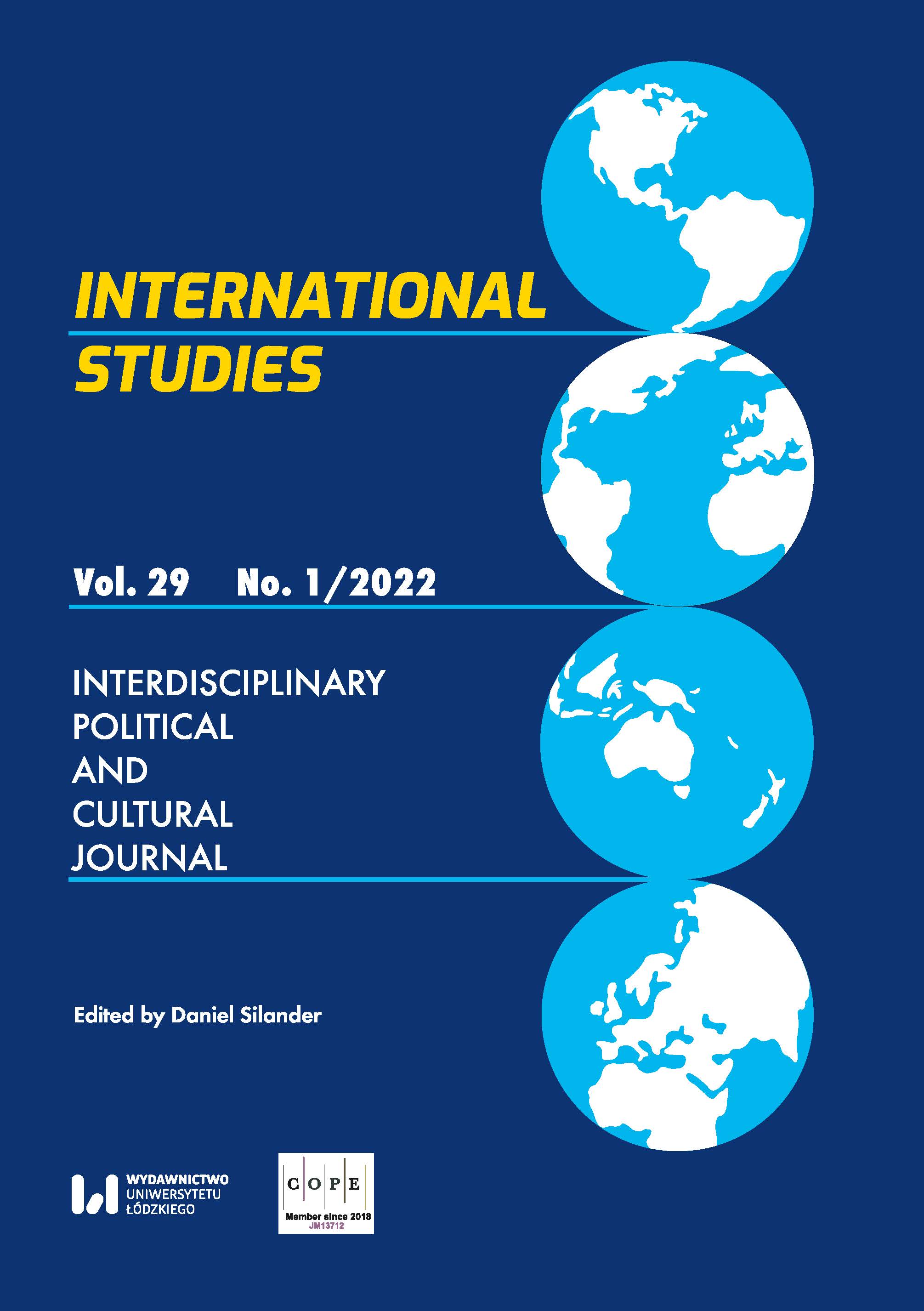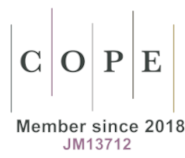Europe 2020: The EU Commission and Political Entrepreneurship
DOI:
https://doi.org/10.18778/1641-4233.29.07Keywords:
European Commission, political entrepreneur, Europe 2020, economic crisis, window of opportunityAbstract
This study deals with the European Commission and Communication Europe 2020, which was a result of the global economic crisis of 2007–2008 and forward. Europe 2020 was an initiative to deal with the crisis by promoting smart, sustainable, and inclusive growth. The Commission addressed the crisis as an existential threat to Europe, but also as a window of opportunity to build a new prosperous region. This study explores the political entrepreneurial efforts taken by the Commission as well as assesses the outcome of reforms implemented. The Commission has achieved many targets, although some challenges remain unsolved.
Downloads
References
Baumol, W.J. “Entrepreneurship: productive, unproductive, and destructive”. Journal of Political Economy, 98.5 (1990): 893–921. https://doi.org/10.1086/261712
Google Scholar
Brickerhoff, P.C. Social Entrepreneurship – The Art of Mission-Based Venture Development. New York: John Wiley and Sons, 2000.
Google Scholar
Carroll, J.J. “Failure is an option: the entrepreneurial governance framework”. Journal of Entrepreneurship and Public Policy, 6.1 (2017): 108–126. https://doi.org/10.1108/JEPP-04-2016-0013
Google Scholar
Copeland, P., James, S. “Policy Windows, ambiguity and Commission entrepreneurship: explaining the relaunch of the European Union’s economic reform agenda”. Journal of European Public Policy, 21.1 (2014): 1–19. https://doi.org/10.1080/13501763.2013.800789
Google Scholar
Crespy, A., Menz, G. “Commission Entrepreneurship and the Debasing of Social Europe Before and After the Eurocrisis”. Journal of Common Market Studies, 53.4 (2015): 753–768. https://doi.org/10.1111/jcms.12241
Google Scholar
Cross, D.M.K. The Politics of Crisis in Europe. Cambridge: Cambridge University Press, 2017.
Google Scholar
Dahl, R.A. Who Governs? Democracy and Power in an American City. New Haven: Yale University Press, 1974.
Google Scholar
EUR-Lex: Distribution of Competences. 2018. Web. 8.05.2018. https://eur-lex.europa.eu/summary/glossary/competences.html?locale=en
Google Scholar
European Commission. Communication from the Commission: Europe 2020: A Strategy for Smart, Sustainable and Inclusive Growth. Brussels, 3.03.2010. Brussels: European Commission, 2010.
Google Scholar
Eurostat a. Smarter, Greener, More Inclusive? Indicators to Support the Europe 2020 Strategy: 2019 edn. Luxembourg: Publications Office of the European Union, 2019.
Google Scholar
Eurostat b. Smarter, Greener, More Inclusive? Indicators to Support the Europe 2020 Strategy: 2017 edn. Luxembourg: Publications Office of the European Union, 2017.
Google Scholar
Gros, D., Roth, F. The Europe 2020 Strategy – Can it Maintain the EU’s Competitiveness in the World?. Brussels: Centre for European Policy Studies (CEPS), 2012.
Google Scholar
Hix, S., Goetz, K.H. “Introduction: European integration and national political systems”. West European Politics, 23.4 (2000): 52–72.
Google Scholar
Karlsson, C., Silander, C., Silander, D., eds. Governance and Political Entrepreneurship in Europe: Promoting Growth and Welfare in Times of Crisis. Cheltenham, UK and Northampton, MA, USA: Edward Elgar Publishing, 2018. https://doi.org/10.4337/9781788112765
Google Scholar
Kingdon, J. Agendas, Alternatives, and Public Policies. New York: HarperCollins, 1995.
Google Scholar
Lisbon Treaty. 2009. Web. 8.05.2018. http://www.lisbon-treaty.org/wcm/the-lisbon-treaty.html
Google Scholar
Middelcar, L. van. ‘Pandemonium – Saving Europé’. Newcastle upon Tyne: Agenda Publishing, 2021.
Google Scholar
Monnett, J. Memoirs. London: William Collins, 1978.
Google Scholar
North, D.C. Institutions, Institutional Change and Economic Performance. Cambridge: Cambridge University Press, 1990. https://doi.org/10.1017/CBO9780511808678
Google Scholar
Osborne, D., Plastrik, P. Reinventing Government: How the Entrepreneurial Spirit Is Transforming the Public Sector. New York: Penguin Books, 1993.
Google Scholar
Putnam, R. Making Democracy Work – Civic Traditions in Modern Italy. Princeton, NJ: Princeton University Press, 1993. https://doi.org/10.1515/9781400820740
Google Scholar
Rosenthal, U., Charles, M.T., Hart, P.T. Coping with Crises: The Management of Disasters, Riots, and Terrorism. Springfield: Charles C. Thomas, 1989.
Google Scholar
Salerno, J.T. “The entrepreneur: real and imagined”. Quarterly Journal of Austrian Economics, 11.3 (2008): 188–207. https://doi.org/10.1007/s12113-008-9043-5
Google Scholar
Schneider, M., Teske, P. “Toward a theory of the political entrepreneur: evidence from local government”. American Political Science Review, 86.3 (1992): 737–747. https://doi.org/10.2307/1964135
Google Scholar
Schumpeter, J.A. The Theory of Economic Development: An Inquiry into Profits, Capital, Credit, Interest, and the Business Cycle. Cambridge: Harvard University Press, 1934.
Google Scholar
Sheingate, A.D. “Political entrepreneurship, institutional change, and American political development”. Studies in American Political Development, 17.2 (2003): 185–203. https://doi.org/10.1017/S0898588X03000129
Google Scholar
Silander, D. “European governance and political entrepreneurship in times of economic crisis”. In: Governance and Political Entrepreneurship in Europe: Promoting Growth and Welfare in Times of Crisis. Eds. C. Karlsson, C. Silander, and D. Silander. Cheltenham, UK and Northampton, MA, USA: Edward Elgar Publishing, 2018: 3–24. https://doi.org/10.4337/9781788112765.00006
Google Scholar
Simmons, R.T., Yonk, R.M., Thomas, D.W. “Bootleggers, baptists, and political entrepreneurs – key players in the rational game and morality play of regulatory politics”. The Independent Review, 15.3 (2011): 367–381.
Google Scholar
Stec, M., Grzebyk, M. “The implementation of the Strategy Europe 2020 objectives in European Union countries: the concept analysis and statistical evaluation”. Quality & Quantity, 52.1 (2018): 119–133. https://doi.org/10.1007/s11135-016-0454-7
Google Scholar
Tusińska, M. “Competitiveness of the European Union – expectations, reality and challenges towards 2020”. Horizons of Politics, 7.21 (2016): 185–204.
Google Scholar
Wandel, J. “The role of government and markets in the strategy “Europe 2020” of the European Union: a robust political economy analysis”. International Journal of Management and Economics, 49.1 (2016): 7–33. https://doi.org/10.1515/ijme-2016-0002
Google Scholar
Published
Versions
- 2024-02-20 (2)
- 2024-01-16 (1)
How to Cite
Issue
Section
License

This work is licensed under a Creative Commons Attribution-NonCommercial-NoDerivatives 4.0 International License.

















